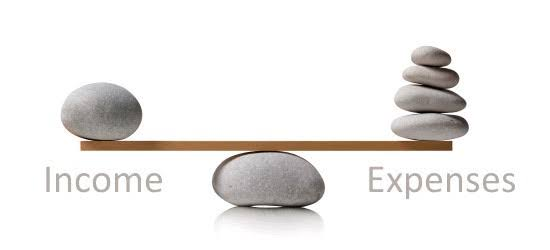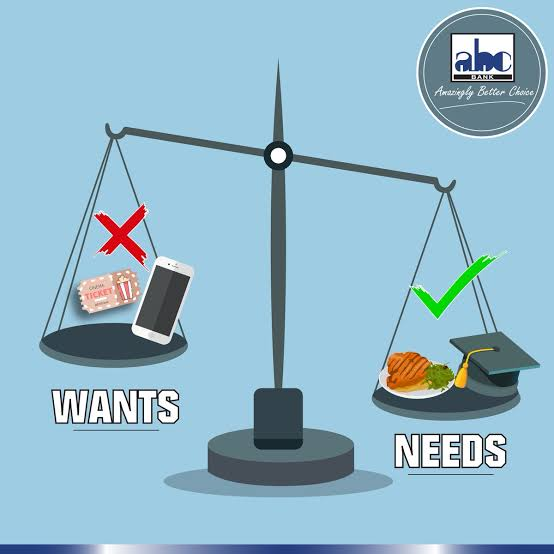How Much Do You Earn And Spend
How much do you earn and spend? Did you spend less than you made? Do you consider applying the effective rule of budgeting? Continue reading and start reflecting on it.
Promoting an effective way of budgeting involves knowing how to live within your means. Applying the 50/30/20 rule is an excellent way to plan your monthly spending. In this rule, 50% of your income goes to your necessities, like housing expenditures, groceries, and monthly gas. On the other hand, your discretionary expenses, including dining out, shopping, traveling, and subscriptions, account for 30% of your income, while savings and debt payments take up 20%. This budgeting rule serves as a guide to living within your means.
Do you know the benefits of applying the 50/30/20 rule to your budgeting? If not, keep reading.
The 50/30/20 rule provides a balanced approach to budgeting. If you’re asking =how to sustain living below your means=, try to reflect on your spending habits and start to apply this rule of budgeting. This can help you set a good goal, including achieving financial stability. By adhering to this method, you will learn how to prioritize your needs, wants, and savings. Furthermore, it helps you to =stop using credit cards=, as they can rack up interest and other debt. Therefore, setting practical financial goals and managing how much you earn and spend will help you become a frugal and wise consumer.
How Much Do You Earn And Spend
Everyone is looking for a way to save money to have nicer and newer. They want houses and cars, vacations, etc. The only answer is to spend less than you earn and save the rest.
Avoid Spending More Than You Earn
Promoting sound financial management means learning not to spend more than you earn. It involves ensuring that your costs do not exceed your income. If you keep reminding yourself how much you earn and spend, it will be easy to succeed this way.
Maintaining your budget and achieving your financial goals depend on your ability to focus on your possible expenditures. Your budget serves as a guide for projected spending. To make sensible financial decisions that align with your guiding principles, you should prioritize your budget over unnecessary expenses. By setting financial objectives, you will be guided in ways that help you increase your financial well-being.
Make Your Lifestyle Match Your Budget
If you want to meet your budget, start living within your means. Make a realistic budgeting plan for you to achieve your budget quickly. Maintaining your financial status is the basic tenet of competent financial management. This may involve checking your spending plan and anticipated costs. Making conscious decisions is the key to financial stability. In addition, living a frugal lifestyle will help you achieve your budget and financial goals. It may be challenging to maintain it at first, but always remember that little changes can have a significant impact. Thus, living within your means becomes easier the more often you stick to your budgeting plan.
Prioritizing Needs Over Wants
How much do you earn and spend? In your spending, do you prioritize your needs over your wants?
There are ways to have fun without compromising your financial stability. You can start by cutting unnecessary expenses, such as tracking spending and automating your savings. Specifically, practice saying “no” to extravagant expenditures. By doing so, you will know how to budget your money. Additionally, think twice before you shop to promote wise spending habits. You may prevent overspending by living within your means and making easy lifestyle changes to meet your budget. If you’re goal-oriented, it is easy for you to prioritize your needs over your wants effectively.
Reduce Financial Stress
Each person has a different coping method for handling financial stress. Financial constraints can be avoided in part by maintaining long-term financial stability. Consequently, you should have a clear understanding of your earnings. Knowing your family’s income will help you create an adequate budget. This may involve developing responsible financial habits, attitudes, and behaviors. Healthy financial management includes being conscious of your income and your spending patterns.
Be Conscious Of Your Financial Choice
Balancing your present situation while saving for the future indicates making conscious financial decisions. By doing so, you can set long-term goals and make simple adjustments. As you work for financial security, learn to adjust to your situation. Being conscious of financial choices means having good spending habits and prioritizing needs over wants. This could be challenging. However, it takes consistency and willingness to realize the significance of conscious financial decisions.
Your Value Isn’t Determined On Your Financial Status
Financial status is not a gauge of self-worth. Adopting a positive outlook and refraining from bad habits are ways to find your value. Doing things that cannot disrupt you financially is better than making invalid decisions to look good and impress others. Hence, avoid excessive materialism, overspending, and using money to seek happiness. Attaining financial stability is one way to live a sustainable lifestyle. You don’t need to spend more money to look financially stable. Additionally, don’t let your pride rule over your money. Realistic happiness is how you feel content and financially secure with your family.
Conclusion
Living within your means is a choice that could lead you to financial stability. If you want to have enough money to cover all your expenses and increase your savings for future purposes, learn to live within your budget. By doing so, it can help you spend less than you earn as well as avoid overspending and accumulating debt. This might be easier said than done for some individuals. However, if you value your earnings and focus on the things that matter most in your life, living within your means and accepting a life of frugality are possible for you. Now, try to reflect on your financial situation: how much do you earn and spend? Do you spend within your means or end up overspending?





